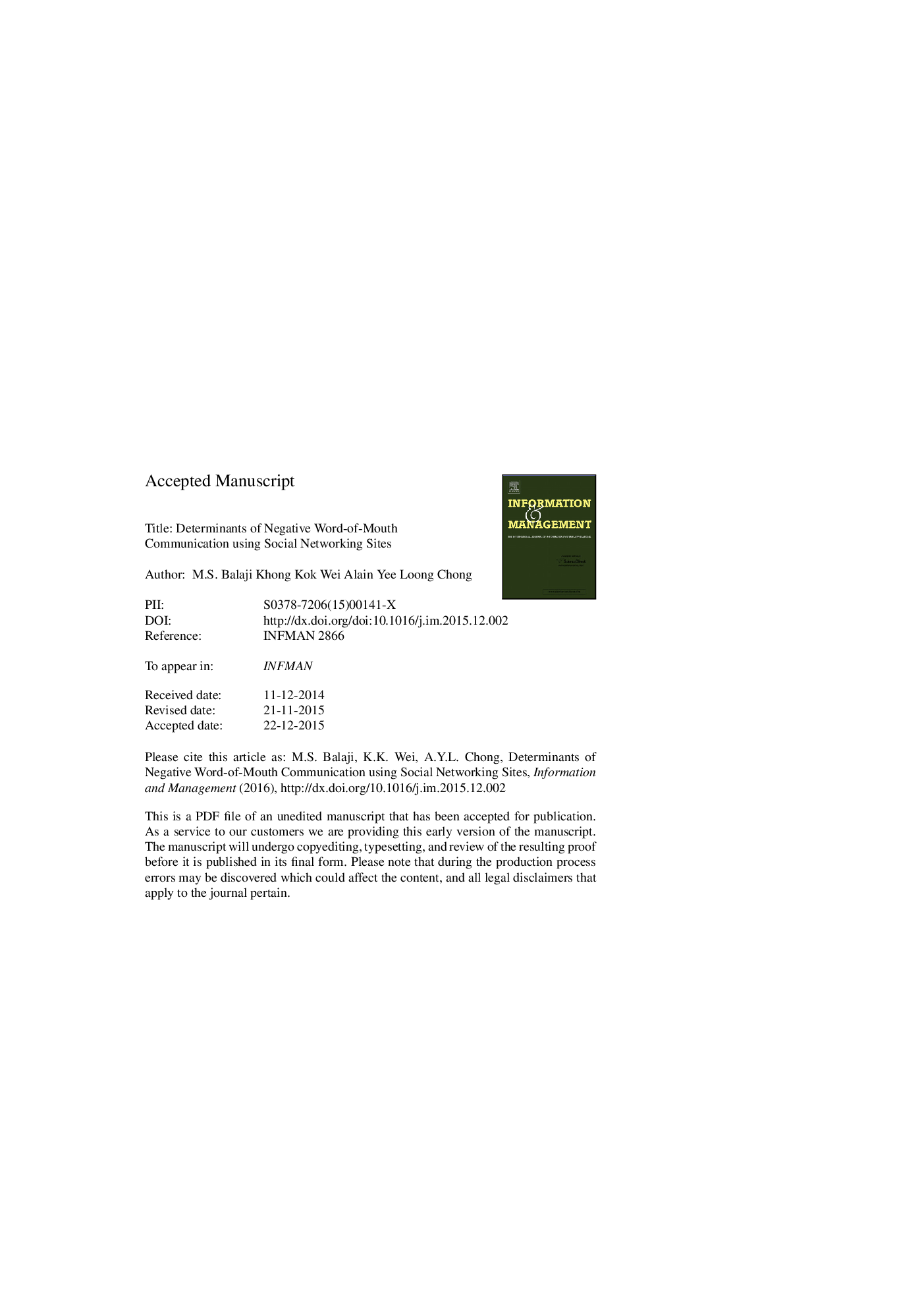| Article ID | Journal | Published Year | Pages | File Type |
|---|---|---|---|---|
| 10367500 | Information & Management | 2016 | 44 Pages |
Abstract
At present, as customers often turn to social media platforms to share their service experience, this study aims to examine the determinants of their negative word-of-mouth communication using social networking sites following a service failure. Although many studies have examined the electronic word-of-mouth communication, studies on negative word-of-mouth communication using social media platforms remain sparse. Building on the cognitive dissonance theory and social support theory, this study proposes and empirically examines the role of contextual, individual and social networking factors in determining the customers' intentions to engage in negative word-of-mouth communication using social networking sites. Self-reported retrospective survey was used to obtain responses from 206 online shoppers. The results of the structural equation modelling showed that feeling of injustice, firm attribution, firm image, face concern, reappraisal, use intensity and tie strength are key antecedents of negative word-of-mouth communication. The findings provide valuable insights for managers in developing effective Webcare interventions for negative word-of-mouth communication on social networking sites.
Keywords
Related Topics
Physical Sciences and Engineering
Computer Science
Information Systems
Authors
M.S. Balaji, Kok Wei Khong, Alain Yee Loong Chong,
